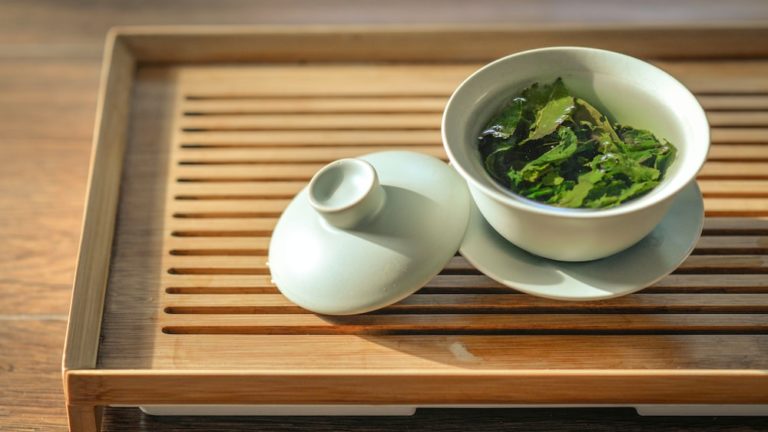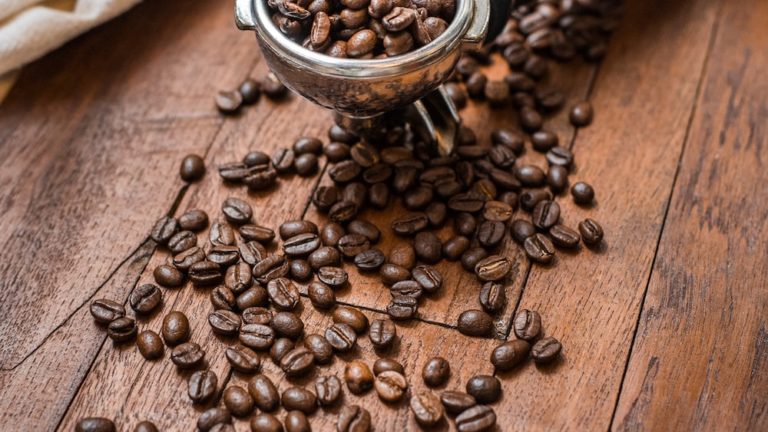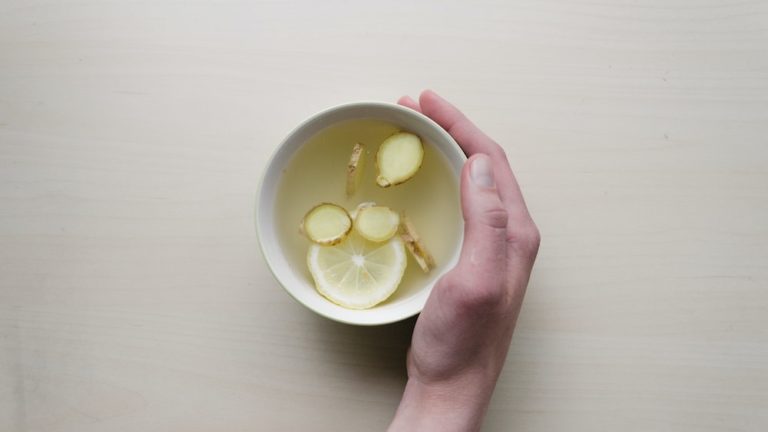Green Tea On Empty Stomach: The Truth You Need To Know
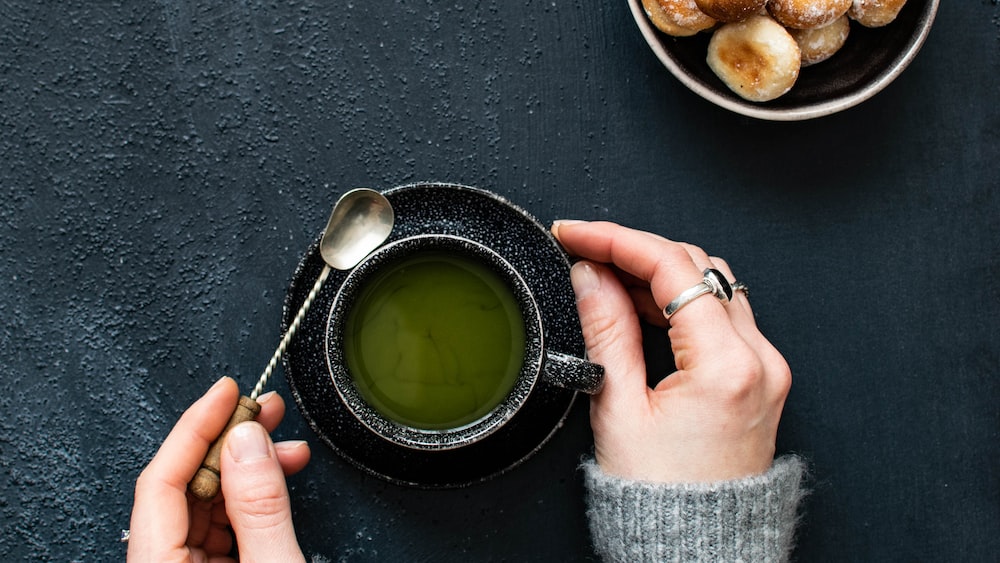
Green Tea On Empty Stomach: The Truth You Need To Know
Hey there, fellow tea lovers! Do you ever find yourself standing in your kitchen before the crack of dawn, green tea steaming hot in your favorite morning mug? And what about this common catch-22: should you drink it before munching on your breakfast or after?
Well, sit back and take a sip, because today, we’re diving deep into the question that keeps so many of us awake at night (or should that be the caffeine?). Is it a good idea to drink green tea on an empty stomach?
I know, I know, it’s a lot to digest, especially before you’ve even had your morning cereal. But don’t worry, we’ll be exploring this tantalizing tea mystery with both light-hearted banter and everything grounded in science, of course. That’s right, even more exciting than your favorite morning tea is this journey we’re about to embark on together!
Understanding Green Tea
But before we start spilling the (green) tea, let’s first dive into a tea 101 crash course. You might be thinking, “I already know what green tea is!”, but trust me, there’s always more to learn. So, join us on this journey as we embark to understand the green sensation that’s taking over our teacups!
What is Green Tea?
Okay, so picture this: Your tea leaves, just chillin’, not a care in the world. These folks are the crème de la crème, the queens of Camellia Sinensis, the plant that gives us all types of tea. Now, imagine them quivering their leaves like whiskers, as they’re plucked in their prime, eager to be transformed into that beautiful brew we all adore – green tea.
But wait! Unlike black or oolong tea, these leaves don’t get the red carpet rolled out with a fancy oxidation process. Nope, green tea leaves take the humble path – they’re dried and heated soon after picking to prevent oxidation, preserving their fresh, green character.
In essence, green tea is the superhero of teas with supernatural freshness, thanks to this no-fuss, quick treatment – no molecular makeovers for these beauties!
Green tea leaves are dried and heated soon after picking to prevent oxidation, preserving their fresh, green character and giving them a supernatural freshness.
Health Benefits of Green Tea
Now, enough about the backstage prep, let’s talk the limelight – the myriad of health benefits that green tea offers. Drinking this emerald concoction is like a VIP pass to several health perks that could make even the grumpiest gnome twitch their nose in awe.
For starters, green tea overflows with powerful antioxidants known as polyphenols – these little wizards fight against harmful free radicals, giving your body the ultimate shield against diseases. Yes, those same nasty free radicals that quietly sneak around messing up your cells’ day.
But the magic doesn’t stop there. Green tea also plays matchmaker by marrying your hydration needs to a heart-friendly brew. Its role in improving cardiovascular health and reducing cholesterol is like a love letter to your heart. Who knew tea was so romantic?
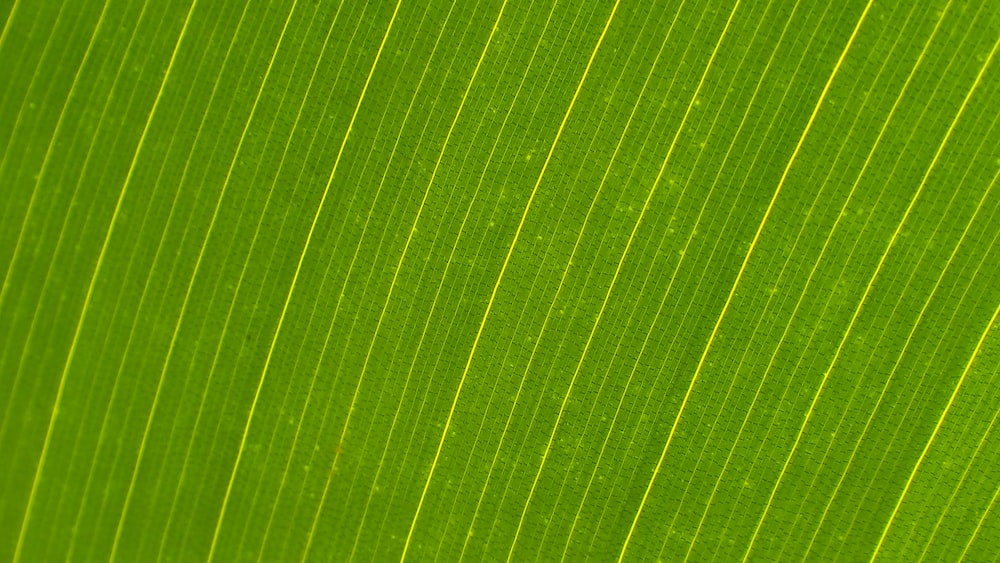
And let’s not forget the pièce de résistance: weight loss! Sipping on green tea can help you wage a war against those stubborn fat cells, thanks to a little compound known as EGCG – a heavyweight champion in boosting metabolism.
The Practice of Drinking Green Tea on an Empty Stomach
You’ve got the leafy lowdown, you know the benefits, now let’s touch upon this debate that’s hotter than a freshly brewed cuppa. Drinking green tea on an empty stomach – is it the secret weapon for health or is it a minefield for potential discomfort?
The Origin of the Practice
Legend has it that the practice originated in ancient China, where monks used to consume green tea early in the morning. They believed it to cleanse the spirit and prepare the mind for meditation. Cool, right?
Fast forward a few centuries and tea houses were springing up across feudal Japan. Tea-drinking became an important social ritual, and the notion of starting the day with tea on an empty stomach persisted. There was nothing like a hot cup of Zen to begin the day!
Now, imagine receiving such a tradition handed down generations (with the occasional Chinese whisper distortion, of course). Fancy a morning mojo boost like our friends from millenniums ago?
The Science Behind the Practice
However, let’s not get carried away by history and miss out on the role science plays in all this. When looking at what’s actually going on in our bellies when tea comes into the picture, it’s like a hot cup of reality served straight up.
As it turns out, green tea contains various components that impact your stomach environment – primarily, polyphenols and caffeine. These fellas can kick-start your metabolism (hurrah), but they can also increase stomach acid (oof).
Moreover, tea polyphenols are found to interact with the proteins in your food. These interactions slow down your absorption of polyphenols, meaning you might slurp up more antioxidants on an empty stomach. An antioxidant party anyone?
But let’s not forget our frenemy – caffeine. While it does pitch in a hand at waking you up and boosting metabolic rates, drinking green tea loaded with caffeine on an empty stomach may lead to problems like increased anxiety and an upset stomach.
Pros and Cons of Drinking Green Tea on an Empty Stomach
Now that we’ve journeyed through the past and peered a little into the science, let’s unravel the ultimate tea bag: the pros and cons of drinking green tea on an empty stomach. Get ready for a roller-coaster ride of ‘brew-tiful’ benefits and bitter drawbacks. Buckle up, tea enthusiasts!
The Positive Effects
There’s a saying in the tea-loving community, “A day without green tea is like a day without sunshine.” The popularity of green tea is not undeserved, and drinking it on an empty stomach may amplify some of its benefits. As an energizer, it could replace your morning coffee, with its rich caffeine content that’ll surely knock the cobwebs from your eyes and make you sprint into the day.
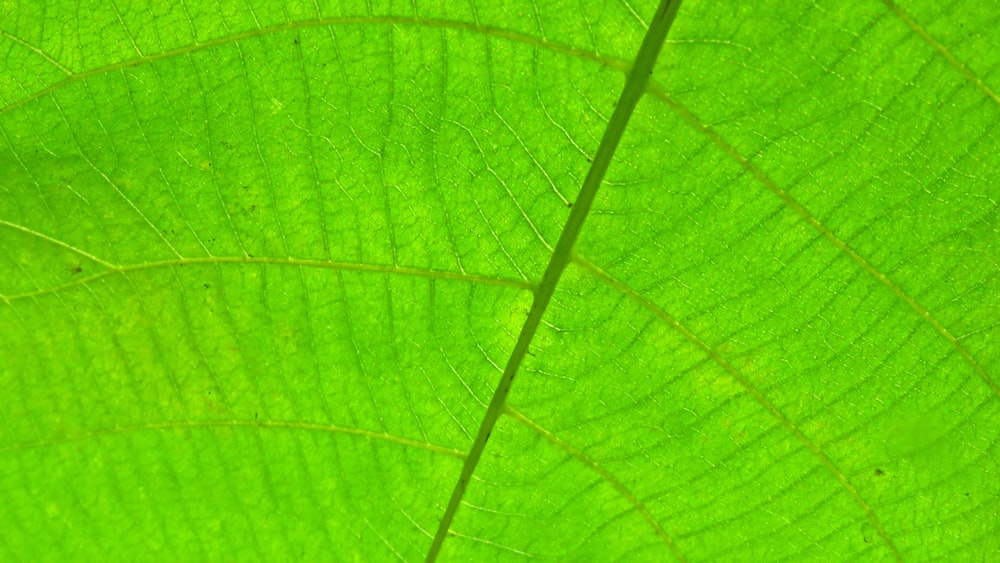
Green tea works as a metabolic catalyst, rocking your body like a hurricane, and might help you burn fat more efficiently. Moreover, it’s packed with antioxidants called catechins, which work like little Pac-Man characters, munching away at harmful free radicals in your body. Furthermore, if you’re into natural remedies, drinking green tea on an empty stomach might be something you’d like to add to your list of home remedies.
The Potential Negative Effects
However, my friends, this is where our green tea bubble might slightly deflate. Drinking any tea on an empty stomach, especially green tea, may not always paint a rosy picture. It kind of behaves like that eccentric distant relative who is a lot of fun at parties, but can sometimes make things go south
Consumption on an empty stomach could lead to certain digestive issues, thanks to the tannins present in green tea. You heard that right! Tannins act like party crashers, interfering with our stomach’s ability to absorb certain nutrients, leading you to possibly feel nauseous or encounter an upset stomach. It could get as dramatic as a soap opera, causing acid reflux, and irregular bowel movements. Remember folks, with great power comes great responsibility!
Green Tea and Fasting
Get ready for another suspense-filled chapter in the green tea chronicle. Connecting the mysterious worlds of green tea and fasting might sound as audacious as dunking a cookie in tea, but lo and behold, they share an interesting tie. But as in every good story, there are twists and turns, so don’t grab your teacup just yet.
The Role of Green Tea in Fasting
While fasting, our body is like an orchestra playing a slow, dramatic piece, trying to conserve energy and burn fat. Green tea steps in here like a virtuoso violinist, directing the fat-burning process, and possibly improving it. In simpler words, when you are fasting, green tea might become your best companion, aiding in your weight-loss journey, and making it as adventurous as Bilbo’s journey to Lonely Mountain.
Moreover, it’s like an imperial bodyguard during your fasting phase, thanks to the abundance of antioxidants, offering protection against possible oxidative stress. In the grand symphony of fasting, green tea is the conductor directing your body’s responses.
The Impact of Green Tea on Digestion During Fasting
Now, while green tea might be playing a hero role during fasting, it also has a bit of a villainous side. Remember the stomach troubles we talked about earlier? Yes, those might magnify if you’re drinking green tea while fasting. Imagine inviting a rock band to a library. That’s pretty much what green tea does to your stomach during fasting. It might trigger discomfort, acid reflux, and an upset stomach, casting a shadow over your body’s peaceful, fasting chapter.
Expert Opinions on Drinking Green Tea on an Empty Stomach
Can you take a wild guess about what experts might say about drinking green tea on an empty stomach? Hold on to your hats, folks, because we’re going on a roller-coaster ride through different viewpoints.
Medical Opinions
Let’s first dive into the realm of medical opinions. Our doctors are the selfless superheroes of our society, always geared up with their capes made of knowledge and unerring judgment. According to Dr. Andrew Weil, consuming green tea on an empty stomach may not be a good idea. He suggests that the alkalinizing effect it has might negatively interact with the acidic environment your stomach tries to maintain when it’s empty.
On the other side of the discourse, Dr. Mike Russel points out that taking green tea on an empty stomach might expedite its absorption, giving a quick caffeine boost and promoting fat burn. However, he warns that it might also speed up the onset of any adverse effects.
So, my tea-rrific friends, you see the conundrum here, right? It’s a bit of a see-saw with expert opinions swinging on the balance. But remember, at the end of the day, it’s your body and only you can best figure out what works well for you.
Consuming green tea on an empty stomach has conflicting opinions from medical experts, with some suggesting it may negatively interact with stomach acid while others believe it can promote fat burn and provide a quick caffeine boost, so it’s important to listen to your body and determine what works best for you.
Nutritionist Opinions
As I squirmed in my seat, waiting for the nutritionists to spill the tea (pun intended) on this hot debate, I was pleasantly surprised by their measured responses. They agreed that green tea is an antioxidant powerhouse but suggested it should be enjoyed in moderation. But hold your teacups, isn’t moderation a bit of a party pooper in our ‘go big or go home’ culture? Still, they insist that if your belly is making more noise than a kettle coming to the boil because you’re sipping unasked-for tea on an empty stomach, you might want to reassess that practice.
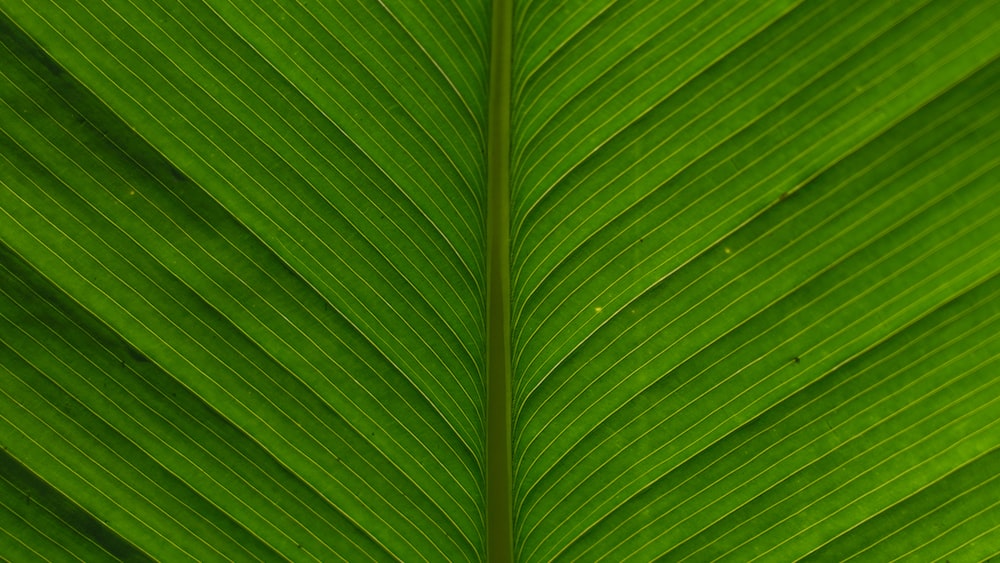
They stressed that while green tea is indeed beneficial, like every good thing, even this needs a balance. Downing green tea like a sailor on shore leave might actually lead to an excess of certain substances, causing a bit of a ruckus in your digestive system. Hence, it’s best to space out your tea consumption throughout the day.
FAQs
1. Is it safe to drink green tea on an empty stomach?
The practice of drinking green tea on an empty stomach can be safe for some individuals, but may cause stomach discomfort for others. While it brings aboard a cargo of antioxidants, some people might find themselves battling a stormy sea within their bellies, especially if they’re sensitive to caffeine.
2. What are the potential side effects of drinking green tea on an empty stomach?
Potential side effects of green tea on an empty stomach can include stomach cramps, nausea, and acidity. Taking green tea as your first morning cup may be like inviting a rowdy crew aboard without a captain – a bit too much of a show in your stomach for your liking!
3. How much green tea should I drink a day?
In terms of how much of green tea you should be consuming each day, think of it like stargazing. Too few and you’re missing out, too many and you’re overstimulated. Empirical studies suggest 3-4 cups should be your cap.
4. Can I drink green tea during fasting?
When considering whether you can fit green tea into your fasting window, the answer is a tentative ‘yes’. Green tea, being calorie-free, doesn’t break your fast, but do keep a weather eye out for how your body reacts.
Conclusion
In the swirling whirlpool of health advice, deciphering what’s best for you can feel like trying to catch a fish in a choppy sea. We’ve dived into expert opinions, navigated through research, and surfaced with a balanced perspective. The takeaway message – green tea is a boon to health, but do mind the portions and the timing. It might not be the best first thing to put in an empty stomach for all, particularly those whose stomachs bear more resemblance to a tempest-tossed sea than a tranquil bay at the onslaught of caffeine.
There’s no hard and fast route on this map. What’s smooth sailing for one might be uncharted waters for another. Listen to your body, adjust your sails based on its signals, and you’ll find your way. After all, life is a journey, not a destination. Stay curious, keep exploring, and don’t be afraid to change course if something isn’t working for you.
Until the tide brings us together again, keep sipping the good stuff, tea explorers! Zoe.

